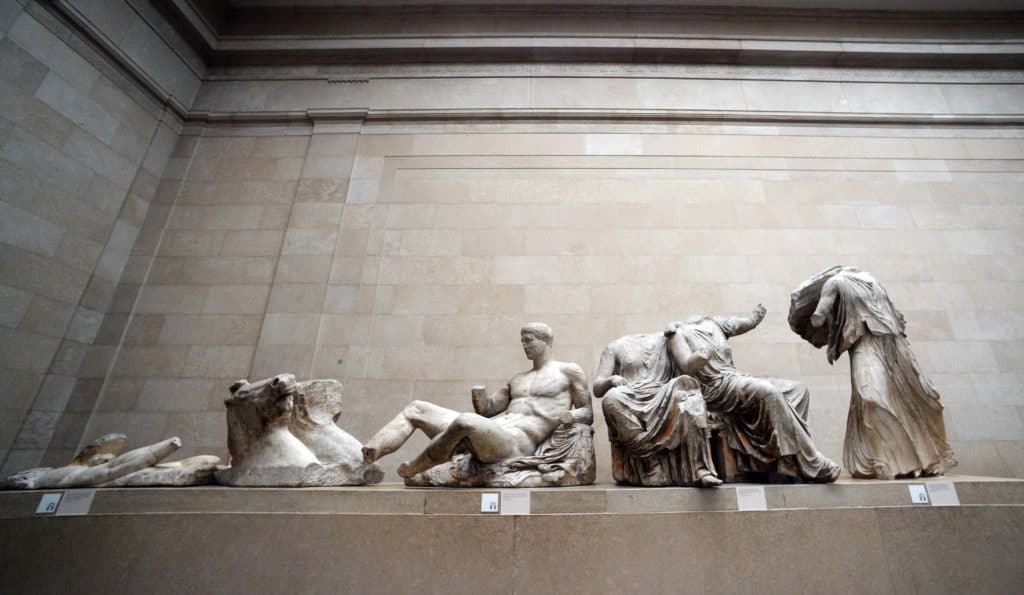A dispute between the UK and Greece over the ownership of the Parthenon Sculptures, also known as the Elgin Marbles, escalated on November 28.
The cancellation of a planned meeting between Prime Minister Rishi Sunak and his Greek counterpart Kyriakos Mitsotakis was attributed to both sides blaming each other. Sunak’s office claimed the cancellation was due to a previous agreement not to use the meeting as a platform to readdress settled matters. Greece, seeking the return of the 2,500-year-old sculptures, dismissed the statement as inaccurate.
Prime Minister Rishi Sunak cancelled Tuesday’s meeting with his Greek counterpart Kyriakos Mitsotakis after his office said the two sides had previously agreed that it should not be used as a public platform “to relitigate long, long-settled matters”.
“It’s simply the case that if assurances are given and they’re not adhered to, that there are consequences for that,” Sunak’s spokesman told reporters.
A senior Greek government official, speaking on condition of anonymity, dismissed the statement as “inaccurate”.
Greece has repeatedly called on the British Museum to permanently return the 2,500-year-old sculptures that British diplomat Lord Elgin removed from the Parthenon temple in 1806, during a period when Greece was under Ottoman Turkish rule.
About half of the 160-metre frieze that adorned the temple is in London, while another 50 metres are in the Acropolis museum in Athens, whose top floor layout mimics the Parthenon.
The sculptures were removed by British diplomat Lord Elgin in 1806. About half of the frieze is in the British Museum, and another 50 meters are in the Acropolis Museum in Athens. Mitsotakis compared the separation of the carvings to cutting the Mona Lisa in half, a characterization rejected by the British government.
British Foreign Secretary David Cameron and Greek counterpart George Gerapetritis met on the sidelines of a NATO ministers meeting in Brussels despite the cancellation. They acknowledged the need for cooperation and discussed common challenges, although there was a fundamental disagreement on the issue of the Parthenon sculptures.
Some British opposition parties and a campaign group called the Parthenon Project, backed by politicians from different parties, criticized Sunak’s decision to cancel the meeting. The group proposes a deal for the reunification of the sculptures in Athens without determining ownership.
The UK government cited a law preventing the British Museum from disposing of items in its collection in most circumstances. Sunak’s decision raised concerns about potential restitution requests from other countries, with the government seeing it as a potentially slippery slope that they would not support.

